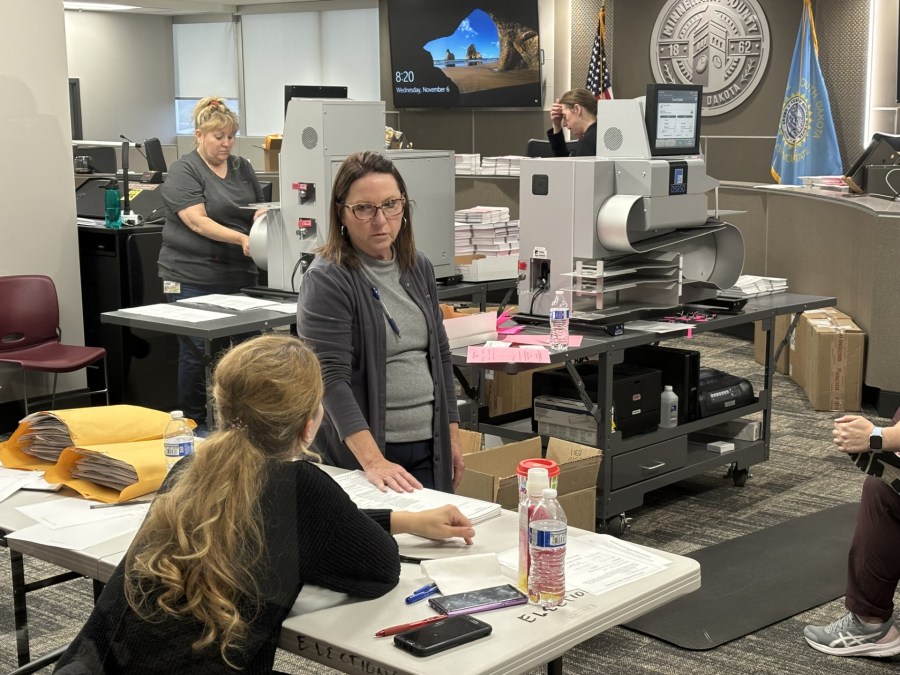SIOUX FALLS, S.D. (KELO) — Following the 2024 general election, results from Minnehaha County were not reported until 3:00 p.m. the day after the election; a full 20 hours after polls closed.
This lengthy process has led to critiques of Minnehaha County Auditor Leah Anderson, including those from Democratic State Representative Erin Healy, who called for Anderson to step down, and Republican Rep. Tony Venhuizen, who wrote that it is “embarrassing that the State of Florida has 98% of its vote counted and we have practically nothing from Minnehaha County,” just before midnight on election day.
Anderson, Duba comment on vote-counting delay
Anderson cited delays throughout the process as the reason behind the slow count.
The 2024 election cycle was Anderson’s first as auditor, and KELOLAND News spoke Thursday with Ben Kyte, who was the Minnehaha County Auditor for the 2022 elections.
“The auditor is the manager of the process,” said Kyte. “In my experience, the most difficult part was always getting enough workers to man the polls and do all the absentee ballot counting.”
Former Minnehaha Commissioner Jeff Barth, who volunteered on election night told KELOLAND News Wednesday that “there is just not enough room in the courthouse to bring in enough people to get it accomplished in a reasonable amount of time,” adding that he felt Anderson did the best she could with the space.
Another stumbling block for the auditor in this election was the county’s four ballot tabulation machine, which ran slowly throughout the early hours after polls closed.
“I know I did hear that they had some ballot jams,” said Kyte. “We always hired the ES&S, the manufacturers of the machines — we always made sure we hired one of their personnel to be on-site during the election that night so if we had any technical problems, they were there to help resolve those.”
Kyte preferred not to give his opinion on the validity of critiques leveled at Anderson, though he did offer suggestions of what he had done.
“I really can’t speak to the situation we had this time, not having been there, but — there are sometimes technical problems that prevent us from, you know, doing some of the work online,” Kyte said. “If she used the staff at Minnehaha County, their experience is pretty good in my opinion — instead of trying to do it themselves, that might be part of the reason they had some difficulties.”
On the subject of ways in which the ballot count could be streamlined, particularly absentee ballots, Kyte did have thoughts. “I wouldn’t want to limit anybody’s ability to vote by cutting off (absentee voting time),” he said. “You know what the timeframe is. You should be able to account for that.”
Rather, Kyte voiced agreement with the idea of letting auditors open absentee ballots on the Monday before election day, giving them time to get them sorted, as well as for running them through the tabulator before polls close, but not releasing results until voting had concluded.
Kyte also expressed a desire to see the selection of an auditor changed.
“Before I left, one of my recommendations to the commission was I think we need to consider having an election official who has some staff like other large communities, and that’s all they do, is elections,” Kyte said. “They’re responsible and they can do the elections for the schools and the city and everybody around.”
This is as opposed to the current system, where the position of Minnehaha County Auditor is an elected one, meaning often the person tasked with carrying out the election is an individual with no election experience. “That was my experience,” said Kyte, adding that the learning curve is steep.
“I think, you know, having somebody with experience who’s there for certainly over several years would benefit the process,” he said.

